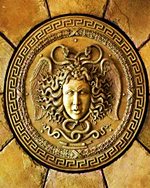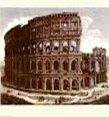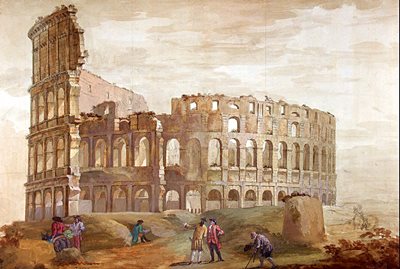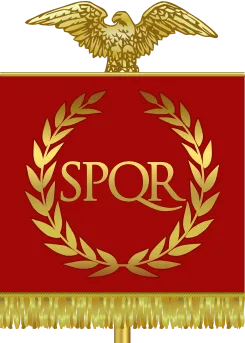|
|
|
| Life |  | Ars longa, vita brevis. Art is long, life is short. — Hippocrates, 460-370 BC, Ancient Greek physician, the “Father of Medicine” |  | Vita non est vivere, sed valera vita est. Life is not about living, but to live a good life. — Martial, 43-104 AD, Roman poet of epigrams |  | Omnis cum in tenebris praesertim vita laboret. Life is one long struggle in the dark. — Lucretius, 98-55 BC, Roman poet |  | Vita in motu. Life is in motion. — Sundial motto |  | Sic vita fluit, dum stare videtur. Life flows away as it seems to stay the same. — Medieval Sundial motto | | | |
|
| Death |  | Memento mori. Remember death. — Latin phrase |  | Vivamus, moriendum est. Let us live, since we must die. — Seneca, 5 AD-65 AD, Roman philosopher |  | Mors ultima ratio. Death has the last word. — Latin proverb |  | Nascentes morimur. From the moment we are born, we begin to die. — Latin phrase |  | Omnia mors aequat. Death equals all things. — Latin phrase |  | Mors certa, hora incerta. Death is certain, the hour is not certain. — Latin phrase |  | Vixere. They lived. — Cicero, 106-43 BC, Roman orator & statesman (after the execution of the participants in the Catilinarian conspiracy; meaning: “they are dead”) |  | Non omnis moriar. I shall not wholly die. — Horace, 65-8 BC, Roman poet |  | Omnes una manet nox. One night awaits everyone. — Horace, 65-8 BC, Roman poet | | | |
|
|
| God |  | Deus vult. God wills. — Latin phrase (the motto of the Christian warriors in the Crusades) |  | Permitte divis cetera. Leave all else to the gods. — Horace, 65-8 BC, Roman poet |  | Deos fortioribus adesse. The gods are on the side of the stronger. — Tacitus, 55-120 AD, Roman historian |  | Cito fit quod dii volunt. What the gods want happens soon. — Gaius Petronius, 1st cent. AD, Roman writer |  | In primis venerare Deos. First of all, worship the gods. — Virgil, 70-19 BC, Roman poet |  | Vocatus atque non vocatus, Deus aderit. Called or not called, God is present. — Erasmus, 1469-1536, Dutch humanist | | | |
|
| Right & Wrong |  | Video meliora, proboque, deteriora sequor. I see what is better, and approve it, but I follow the worse. — Ovid, 43 BC-17 AD, Roman poet |  | Rex non potest peccare. The king can do no wrong. — Latin proverb |  | Abusus non tollit usum. Abuse does not cancel use. — Latin phrase (misuse of something is no argument against its proper use) | | | |
|
| Prayer |  | Ora et Labora. Pray and Work. — Motto of the Benedictine Order | | | |
|
| Faith |  | Credo quia absurdum. I believe because it is absurd. — Tertullian, 155-240 AD, Berber-Roman Christian author |  | Quod semper, quod ubique, quo ab omnibus. What always, what everywhere, what by everybody. — Saint Vincent of Lerins, 5th century Gallic monk (determining what Catholics must believe to fight heresy) | | | |
|
|
|
| The Truth |  | Vi Veri Veniversum Vivus Vici. By the power of truth, I, while living, have conquered the universe. — Aleister Crowley, 1875-1945, British magician & occultist, (or V.V.V.V.V.; mentioned also in the graphic novel “V for Vendetta”) |  | Vitam impendere vero. Dedicate your life to truth. — Juvenal, 1st-2nd cent. AD, Roman satiric poet |  | Nihil veritas erubescit. Truth does not blush. — Tertullian, 155-240 AD, Berber-Roman Christian author | | | |
|
| Transience |  | Sic transit gloria mundi. Thus passes the glory of the world. — Latin phrase |  | Mox nox. Night, shortly. — Medieval Sundial motto |  | Et in Arcadia ego. Even in Arcadia was I. — Latin phrase — Tomb inscription in the painting of Nicolas Poussin “Shepherds of Arcadia” (Arcadia, in Peloponnese, symbolizes Utopia) | | | |
|
| Time |  | Utere, non numera. Use the hours, don’t count them. — Medieval Sundial Motto |  | Ars longa, vita brevis. Art is long, life is short. — Hippocrates, 460-370 BC, Ancient Greek physician, the “Father of Medicine” |  | Omnes vulnerant, ultima necat. All hours wound, the last one kills. — Medieval Sundial motto |  | Tempus edax rerum. Time devours everything. — Ovid, 43 BC-17 AD, Roman poet |  | Ex hoc momento pendet aeternitas. Eternity is hinged upon this moment. — Medieval Sundial Motto |  | Fugit inreparabile tempus. Time flies without return. — Virgil, 70-19 BC, Roman poet |  | Serius est quam cogitas. It’s later than you think. — Sundial motto | | | |
|
| Duration |  | Lente hora, celeriter anni. An hour passes slowly, but the years go by quickly. — Medieval Sundial motto |  | In saecula saeculorum. Unto the ages of ages. — Latin phrase (from the Vulgate; translation of the original Greek “εις τους αιώνας των αιώνων”) |  | Exegi monumentum aere perennius. I have made a monument more lasting than bronze. — Horace, 65-8 BC, Roman poet | | | |
|
|
| Haste & Delay |  | Veritas odit moras. Truth hates delay. — Seneca, 5 AD-65 AD, Roman philosopher |  | Lente hora, celeriter anni. An hour passes slowly, but the years go by quickly. — Medieval Sundial motto |  | Si post fata venit gloria, non propero. If glory comes after death, I hurry not. — Martial, 43-104 AD, Roman poet of epigrams |  | Potius sero quam numquam. Better late than never. — Titus Livius, 59 BC-17 AD, Roman historian | | | |
|
|
| Ending |  | Plaudite, amici, comedia finita est! Applaud, my friends, the comedy is over! — Augustus, 63 BC-14 AD, Roman Emperor (a little before his death) |  | Omnes vulnerant, ultima necat. All hours wound, the last one kills. — Medieval Sundial motto |  | Finis coronat opus. The end crowns the work. — Latin phrase (i.e. a work can be judged only after it is finished or how is finished) | | | |
|
|
| Sleep |  | Qui dormit, non peccat. The man who sleeps does not sin. — Latin proverb | | | |
|
| Void |  | Natura abhorret a vacua. Nature abhors a vacuum. — Latin phrase | | | |
|
|
|
| Order |  | Novus ordo seclorum. New order of the ages. — motto on the Great Seal of the United States | | | |
|
|
|
| Injustice |  | Summum jus, summa injuria. Extreme justice [means] extreme injustice. — Latin phrase | | | |
|
| Adaptation |  | Ubi bene, ibi patria. Homeland is where your life is good. — Latin phrase | | | |
|
| Usefulness |  | Abusus non tollit usum. Abuse does not cancel use. — Latin phrase (misuse of something is no argument against its proper use) | | | |
|
| Futility |  | Memento mori. Remember death. — Latin phrase |  | Nil homini certum est. Nothing is certain to men. — Ovid, 43 BC-17 AD, Roman poet |  | Umbra sicut hominis vita. The life of a human being is like a shadow. — Medieval Sundial motto |  | Et in Arcadia ego. Even in Arcadia was I. — Latin phrase — Tomb inscription in the painting of Nicolas Poussin “Shepherds of Arcadia” (Arcadia, in Peloponnese, symbolizes Utopia) | | | |
|
|
| New |  | Nihil sub sole novum Nothing is new under the sun. — Latin phrase | | | |
|
| Rules |  | Exceptio probat regulam de rebus non exceptis. An exception tests the rule as to things not excepted. — Latin phrase | | | |
|


